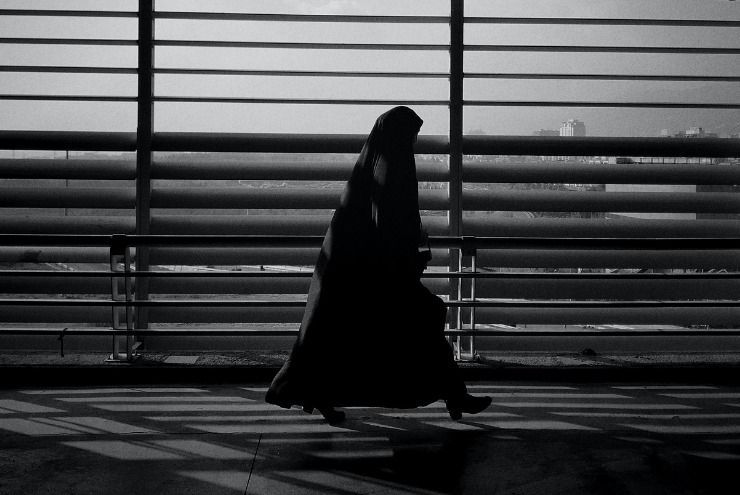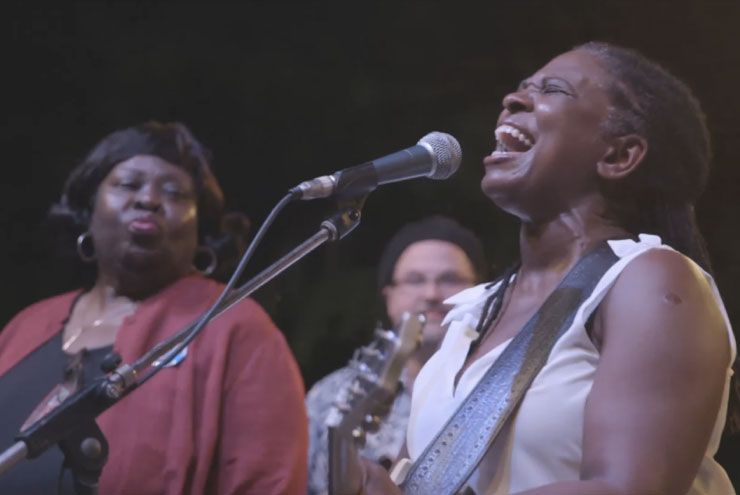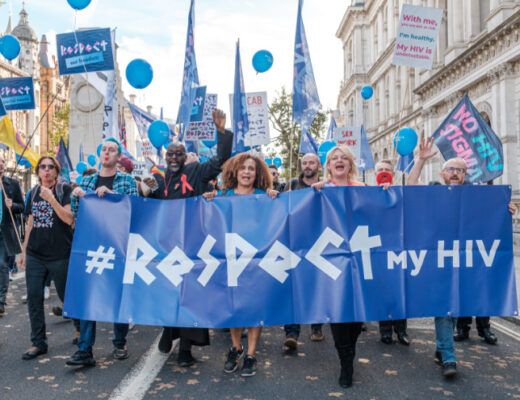By Dr. Laura McGuire
Editor’s note: Names have been changed to protect privacy. The views and opinions expressed in this interview are those of the authors and do not necessarily reflect the views of Spectrum South.
Welcome to part three of Queers Who Cover! (Make sure to catch up on part one and two!). When I started this project, I had no idea it would become a trilogy. This journey just goes to show how diverse the queer community really is—and how vital it is to our growth and inclusion as a queer culture that we look beyond what we think queerness should be. There are proud LGBTQ folks in every community and who hold a vast array of beliefs and presentations.
Today we meet Katie Johnson, a bisexual Muslim who wears the niqab (hair and face covering). As a person of devout and outward signs of faith, Johnson sometimes gets erased from what we think of as queerness. I was excited to speak with her about how her faith and sexual orientation have impacted who she is today, as well as to expand the conversation on queers who cover.
Dr. Laura McGuire: Thank you for joining us today and giving us insight into your queer covering journey. Tell us a little about yourself and your identities.
Katie Johnson: Hi, I’m Katie and I am a Muslim convert to Islam. I identify as bisexual and I’m biracial.
What is your religious identity and how has it evolved throughout your life?
I became a Muslim around the time I graduated high school, so I was about 18 or so. Before that, I was technically Christian culturally, but I didn’t like being Christian. My parents are divorced and have two very different ways of understanding God—my mom is evangelical and my father doesn’t believe in God at all.
How did covering become part of your daily life?
I began to cover as soon as I converted to Islam. The way that I choose to cover has changed, of course, but from the very beginning, I wanted to engage in covering my hair for the sake of Allah.
How have people around you reacted to your decision to cover?
Honestly, I’ve had some really mixed reactions, even among Muslims. There is always a sort of disagreement on how much to cover according to the Quran and culture. Some people think the way they cover is the best way or the only way to cover, and that isn’t true.
How does covering play into your faith practice? How do you see covering as a tool to enhance your spiritual journey?
Covering is an important part of my faith journey since it connects me to our tradition. I find that it serves as a regular reminder to be conscious of Allah, which is really important to me in a world that doesn’t normally encourage contemplation around divinity.
Many people might not realize that almost all major organized religions have a historical precedent around hair covering. What does Islam say about covering?
This is so true! Islam holds a variety of ways to cover. The most mainstream method is to cover one’s hair and to have some part of the hair covering draped over the chest as well. How this has been interpreted has varied from culture to culture, of course, but this is my understanding. Some women cover their faces and some women also just do a turban style. The Quran says the hijab is designed to make women known as believers.
In my experience, so many individuals and communities that embrace covering don’t embrace the other aspects of my beliefs, such as feminism and LGBTQ inclusion. How have you found the balance between these beliefs that others see as dichotomous?
I am a bit old-fashioned—I believe Islam comes before some of our more modern interpretations. Some people take issue with the fact that I have committed myself to a life of partial celibacy. This means that, even though I know I am bisexual, as part of my test on this earth (among many other tests), I try to give up my worldly desire to be with anybody besides my husband. I don’t consider this particularly difficult because I wouldn’t be with any man besides my husband either. It’s just monogamy, basically.
That being said, I also think feminism is fine. I am not necessarily going to be pro–Free the Nipple or anything, but the world needs to understand the rights of women.
How have you reclaimed the concept of abstinence and modesty through a feminist lens?
I believe that Allah gave me my body as a trust. He created me from a place of divine love and would not create women as lesser creatures. This is why I believe in giving parts of my life up for His sake—the only thing I want is to seek the pleasure of Allah for my afterlife.
What would you like others to know about being a person of faith and being LGBTQ+?
I want everyone to understand that they were created by our beloved Creator from a place of love and He understands our struggles, needs, and more. Anybody can be a person of faith and be anywhere on the spectrum of sexuality. Every soul is so valuable in the eyes of God.
How can people get in contact with you?
I can be reached at [email protected].







